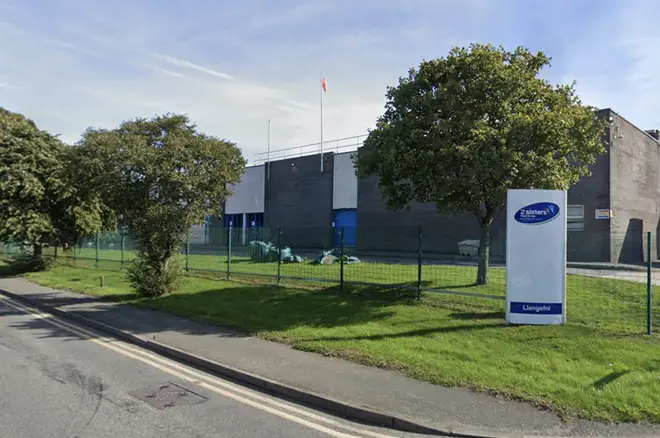
Ben Kentish 10pm - 1am
23 June 2020, 22:50

Boris Johnson has admitted he is unsure what is causing outbreaks of coronavirus in meat processing plants after 200 cases were confirmed at one Welsh facility.
The Prime Minister said one theory is that the cold environment in such factories may be helping Covid-19, while another is that staff could be "congregating in such a way as to spread the virus".
But he conceded that investigations are continuing in a bid to find a definitive answer.
There are now 200 cases of Covid-19 associated with the 2 Sisters chicken processing plant in Llangefni, Anglesey, including household contacts of staff.
More than 450 samples have been taken so far during the rapid screening phase from the 560 staff.
I now understand #2Sisters Sisters WILL be paying #Llangefni staff in full during the 2week closure. Clearly the right thing to do. Welfare of workers &community vital as measures are underway to contain this outbreak. Spoken with the company owner to a seek number of assurances.
— Rhun ap Iorwerth (@RhunapIorwerth) June 22, 2020
The number rose from 58 cases on Friday to 175 on Monday, before hitting 200 on Tuesday.
70 cases have also been confirmed at the Rowan Foods factory in Wrexham, with another cluster at the Kober meat processing factory in Cleckheaton, West Yorkshire, confirmed by owner Asda last week.
On Tuesday, Welsh health minister Vaughan Gething revealed an investigation was also underway at the Kepak meat processing plant in Merthyr Tydfil, which is not classed as an outbreak, where there had been 34 confirmed cases since April 25 including eight since June.
Mr Gething said a meeting with unions would take place later this week to seek information on "appropriate communication methods" to help meet the health and safety needs of workers at each of the sites, while he planned to publish safety planning guidance for the sector later this week.
He said said outbreaks in food processing plants were a feature of the pandemic "around the world", including the USA and Canada, with an outbreak in Germany affecting more than 1,300 employees.
If you are a 2 Sisters employee and are self-isolating we can discuss food supply options available to you with delivery to your door.
— Isle of Anglesey CC #KeepWalesSafe (@angleseycouncil) June 23, 2020
Call Anglesey County Council on 01248 750057 and choose option 4 on the call list.
The referrals are completely confidential.@2SFGofficial pic.twitter.com/8Avy3pPW5a
Speaking in the Commons, SNP MP Martyn Day (Linlithgow and East Falkirk) said: "We're witnessing that even countries like Germany - with good control of Covid-19 - are developing outbreaks which centre around meat processing plants.
"So what explanation has been given to the PM about this trend and how on earth does he think it'll be improved by cutting the safe distance from two metres to one metre?"
Mr Johnson replied: "We're looking at exactly what's happening in meat processing plants.
"There are currently, I think, two theories advanced to me - one about the cold environment in the plants may be propitious to the virus, the other is the possibility that staff are congregating in such a way as to spread the virus.
"I don't know what it is, we are investigating.
Listen & subscribe: Global Player | Apple Podcasts | Google Podcasts | Spotify
"But wherever these outbreaks take place, we will use local cluster-busting techniques to stamp them out."
At the Downing Street press conference, the Government's chief scientific adviser Sir Patrick Vallance said the environment in meat plants could be a factor.
"They are cold, and we know the virus prefers it in the cold, there's often difficulty in keeping people physically separated, so there is that whole problem of proximity," he said.
They were often noisy - requiring people to speak louder and risk spreading the virus - and workers may "huddle" together during breaks.
"So the environment itself is rather a difficult one in terms of the risk and the behaviours that need to be in place in order to reduce those risks," he added.